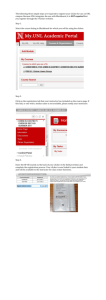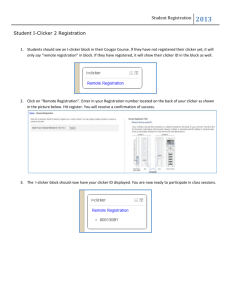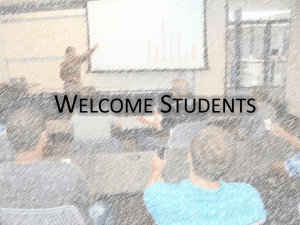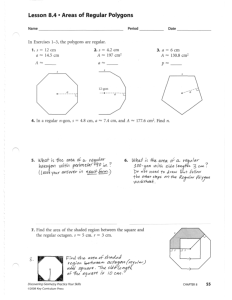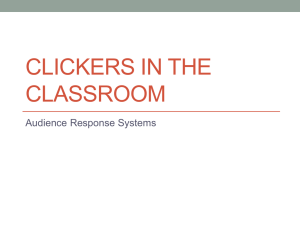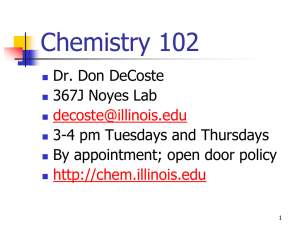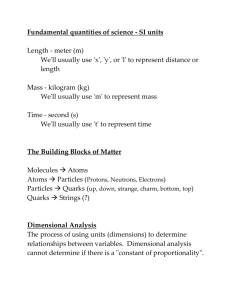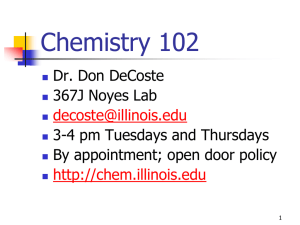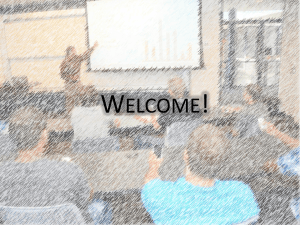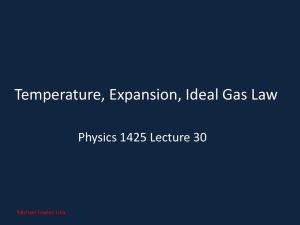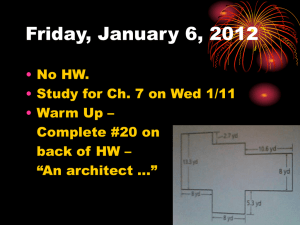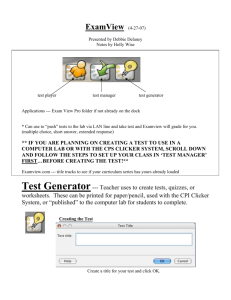Thursday, January 22
advertisement
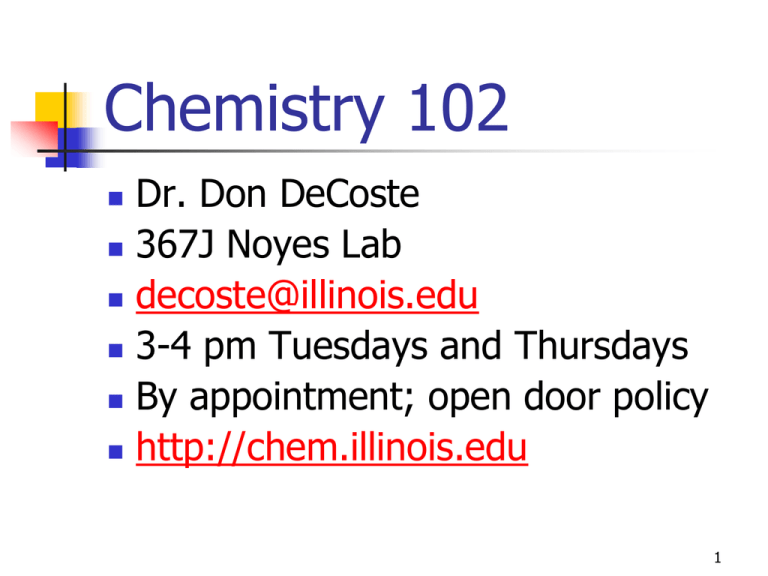
Chemistry 102 Dr. Don DeCoste 367J Noyes Lab decoste@illinois.edu 3-4 pm Tuesdays and Thursdays By appointment; open door policy http://chem.illinois.edu 1 To Do Read Chapters 1 and 2. Text homework for Chapters 1 and 2. Lon-Capa assignment #1. 2 Uncertainty in Measurement 3 Clicker Question How many significant figures should be reported? a) b) c) d) e) 1 2 3 4 5 4 Clicker Question What is the volume reading of the buret? a) b) c) d) e) 20.14 20.15 20.16 20.17 20.18 5 Clicker Question How many significant figures are in the measurement 0.030140 liters? a) b) c) d) e) 3 4 5 6 7 6 Clicker Question You add 82.4 mL of water in a graduated cylinder to 25 mL of water in a beaker. How much water should you report? a) b) c) d) e) 100 mL (1 significant figure) 110 mL (2 significant figures) 110. mL (3 significant figures) 107 mL (3 significant figures) 107.4 (4 significant figures) 7 Clicker Question In the last problem you added 82.4 mL and 25 mL to get an answer reported to 3 significant figures. What is the final reported answer if you multiply 82.4 cm and 25 cm? a) b) c) d) e) 2000 cm2 (1 significant figure) 2100 cm2 (2 significant figures) 2060 cm2 (3 significant figures) 2.10 x 103 cm2 (3 significant figures) 2060. cm2 (4 significant figures) 8 Particulate Nature of Matter Atom: smallest part of an element that is still that element (fundamental unit of which elements are composed). Molecule: Two or more atoms joined and acting as a unit. (element or compound) 9 Atomic Element 10 Molecular Elements 11 Compounds 12 Macroscopic versus Microscopic 13 Chemistry – A Big Idea Atoms have structure. Subatomic particles – electrons, protons, and neutrons. Atoms are mostly open space. Atoms can attract (and repel) one another. 14 Atomic Structure–So What? Bonds form within molecules. Molecules are sticky (forces between molecules). Different reactivities of elements (why is He in Mylar balloons?). Fireworks. Pools close during a thunderstorm. 15
